QOTD: Do You Actually Care About Chinese Imports?

Following our coverage of the Lincoln Nautilus Hybrid, reader feedback seemed overwhelmingly focused on the vehicle being manufactured in China. This was interesting because the article dealt exclusively with updates to the vehicle, which is technically still a product of North America.
But Ford Motor Co. has confirmed that the next-generation Nautilus will indeed be imported from China so that the Canadian facility currently responsible for U.S. volume can be transitioned into an electric-vehicle plant.
The midsize crossover is currently produced at Ford’s Oakville Assembly Plant in Ontario, Canada. However, the automaker had announced an investment of $1.8 billion CAN ($1.34 billion USD) to prep the site for all-electric vehicles.
While the Lincoln Nautilus isn’t sublimely popular, averaging around 25,000 sales in the U.S. annually, having Oakville Assembly down means Ford had to come up with something and it elected to pull China out of the bullpen — setting the SUV up to become Ford’s very first Chinese import.
In some respects, this is a shrewd move. General Motors managed to make inroads on the Asian market by selling premium-badged products to Chinese customers that viewed brands like Cadillac and Buick as a cut above. Localizing some of its production there similarly helped GM build good faith in what’s now the world’s largest automotive market.
Ford has struggled by comparison. Though it’s been taking action that has helped improve Chinese sales figures in recent years — the worst period of the pandemic notwithstanding.
But there are risks involved. Tensions between China and the U.S. have been rising and Americans, beleaguered by a weakening economy, may not look favorably on a product they would have preferred to see produced locally. Canadians at least have the benefit of knowing they’re getting an upgraded factory out of the deal.
Everyone seems to be talking about it and trying to decide whether or not this is a smart play for Blue Oval. But, while the peanut gallery gripes, CNBC pointed out the reality of the situation:
Importing a vehicle from China to the U.S. is not unprecedented but can draw public and political criticism or backlash, especially when tensions between the two countries are high.
Most notably, General Motors has been criticized for importing its Buick Envision crossover from China to the U.S. since 2016. The Detroit automaker has sold more than 200,000 of the China-made vehicles, which American union officials have called the “Invasion” and “a slap in the face.”
Importing a vehicle from overseas to the U.S. can make good business sense, however, for a company such as Ford.
“In this case, it’s a good use of resources,” said Stephanie Brinley, associate director of research at S&P Global Mobility. “Without importing, Lincoln does not get the product, and the brand needs products between now and when its EVs arrive.”
Ford has offered up a similar explanation, stating that Lincoln is a global brand focused on growth. It already makes the Nautilus in China and the vehicle sells nearly as well there as it does here. A spokesperson from the company said that it makes sense to localize production as it provides an opportunity “to gain manufacturing efficiencies and retool our Oakville facility to get ready to build our next generation EVs.”
Meanwhile, Lincoln’s U.S. volumes are nowhere near the highs of the 1990s. The last few decades have shown the automaker struggling in the home market, with some modest improvement after 2014. But it’s not exactly a comeback and the company is probably thinking there won’t ever be one unless it can sell more vehicles in other parts of the world.
That puts Lincoln in a less-than-enviable position. But it doesn’t mean consumers are going to care in the slightest. People seem to be genuinely upset that Ford plans on importing the Nautilus and it may ultimately hurt Ford’s bottom line on the domestic market. Customers are already annoyed with lackluster reliability and ever-expanding MSRPs. It may be unwise to give them something else to complain about.
In the interim, we expect Ford to continue reminding everyone that it’s still technically the number-one automaker in regard to vehicles assembled and hourly workers employed inside of North America.
The question for you is how much that really matters. Are you someone that would think twice about buying from a domestic manufacturer that’s importing vehicles (even if it’s just one) from China? Or is the Chinese connection an irrelevant factor when determining your next ride?
[Image: Ford Motor Co.]
Become a TTAC insider. Get the latest news, features, TTAC takes, and everything else that gets to the truth about cars first by subscribing to our newsletter.

A staunch consumer advocate tracking industry trends and regulation. Before joining TTAC, Matt spent a decade working for marketing and research firms based in NYC. Clients included several of the world’s largest automakers, global tire brands, and aftermarket part suppliers. Dissatisfied with the corporate world and resentful of having to wear suits everyday, he pivoted to writing about cars. Since then, that man has become an ardent supporter of the right-to-repair movement, been interviewed on the auto industry by national radio broadcasts, driven more rental cars than anyone ever should, participated in amateur rallying events, and received the requisite minimum training as sanctioned by the SCCA. Handy with a wrench, Matt grew up surrounded by Detroit auto workers and managed to get a pizza delivery job before he was legally eligible. He later found himself driving box trucks through Manhattan, guaranteeing future sympathy for actual truckers. He continues to conduct research pertaining to the automotive sector as an independent contractor and has since moved back to his native Michigan, closer to where the cars are born. A contrarian, Matt claims to prefer understeer — stating that front and all-wheel drive vehicles cater best to his driving style.
More by Matt Posky
Latest Car Reviews
Read moreLatest Product Reviews
Read moreRecent Comments
- 3-On-The-Tree 2007 Toyota Sienna bedsides new plugs, flat tire on I-10 in van Horn Tx on the way to Fort Huachuca.2021 Tundra Crewmax no issues2021 Rav 4 no issues2010 Corolla I put in a alternator in Mar1985 Toyota Land Cruiser FJ60 280,000mi I put in a new radiator back in 08 before I deployed, did a valve job, new fuel and oil pump. Leaky rear main seal, transmission, transfer case. Rebuild carb twice, had a recall on the gas tank surprisingly in 2010 at 25 years later.2014 Ford F159 Ecoboost 3.5L by 80,000mi went through both turbos, driver side leaking, passenger side completely replaced. Rear min seal leak once at 50,000 second at 80,000. And last was a timing chain cover leak.2009 C6 Corvette LS3 Base, I put in a new radiator in 2021.
- ChristianWimmer 2018 Mercedes A250 AMG Line (W177) - no issues or unscheduled dealer visits. Regular maintenance at the dealer once a year costs between 400,- Euros (standard service) to 1200,- Euros (major service, new spark plugs, brake pads + TÜV). Had one recall where they had to fix an A/C hose which might become loose. Great car and fun to drive and very economical but also fast. Recently gave it an “Italian tune up” on the Autobahn.
- Bd2 Lexus is just a higher trim package Toyota. ^^
- Tassos ONLY consider CIvics or Corollas, in their segment. NO DAMNED Hyundais, Kias, Nissans or esp Mitsus. Not even a Pretend-BMW Mazda. They may look cute but they SUCK.I always recommend Corollas to friends of mine who are not auto enthusiasts, even tho I never owed one, and owned a Civic Hatch 5 speed 1992 for 25 years. MANY follow my advice and are VERY happy. ALmost all are women.friends who believe they are auto enthusiasts would not listen to me anyway, and would never buy a Toyota. They are damned fools, on both counts.
- Tassos since Oct 2016 I drive a 2007 E320 Bluetec and since April 2017 also a 2008 E320 Bluetec.Now I am in my summer palace deep in the Eurozone until end October and drive the 2008.Changing the considerable oils (10 quarts synthetic) twice cost me 80 and 70 euros. Same changes in the US on the 2007 cost me $219 at the dealers and $120 at Firestone.Changing the air filter cost 30 Euros, with labor, and there are two such filters (engine and cabin), and changing the fuel filter only 50 euros, while in the US they asked for... $400. You can safely bet I declined and told them what to do with their gold-plated filter. And when I changed it in Europe, I looked at the old one and it was clean as a whistle.A set of Continentals tires, installed etc, 300 EurosI can't remember anything else for the 2008. For the 2007, a brand new set of manual rec'd tires at Discount Tire with free rotations for life used up the $500 allowance the dealer gave me when I bought it (tires only had 5000 miles left on them then)So, as you can see, I spent less than even if I owned a Lexus instead, and probably less than all these poor devils here that brag about their alleged low cost Datsun-Mitsus and Hyundai-Kias.And that's THETRUTHABOUTCARS. My Cars,



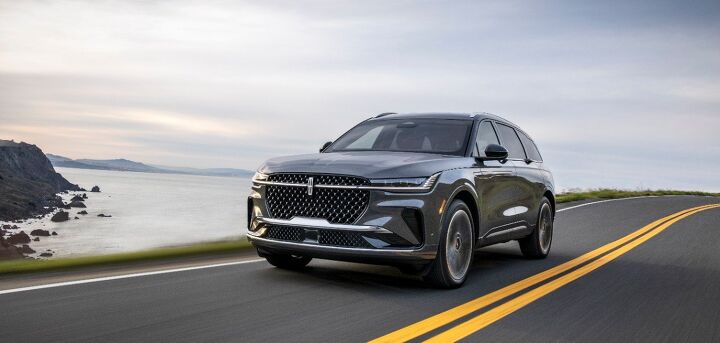














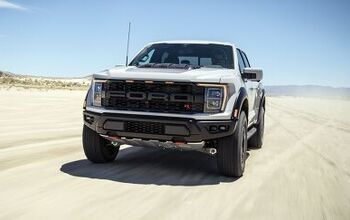

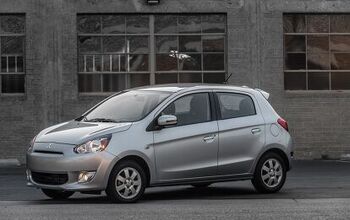
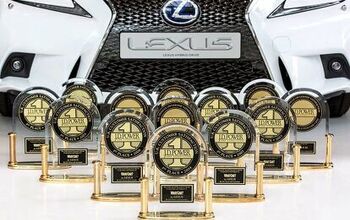
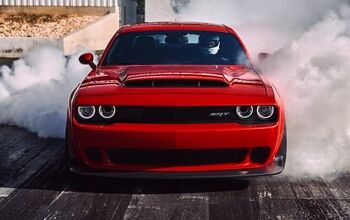
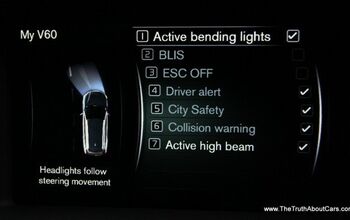




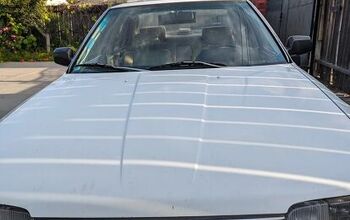





Comments
Join the conversation
IMO, it has nothing to do with anything but profits. I lost all faith in anything Ford puts out there after the Powershift transmission issue (A family member got double fisted without lube by Ford on that one) so after that and Ford's continuing quality issues (Bring back the old motto with a variation: At Ford, Quality is Job NONE!). Ford is clearly unwilling to compete with Toyota and Honda, who are still selling cars. Less, of course but look around and all the Camrys, Accords, Corollas and Civics still selling. So many still on the road. How many Fusions are still out there? How about the Focus?
The level of corporate ignorance is staggering. Ford's screw ups are legendary. I remember an interview with some idiot who was in charge of branding a number of years ago when Ford decided that every car's name would start with an "F", except for the Mustang and Thunderbird, of course and every truck name would start with an "E". The branding moron was quoted in that interview that they didnt understand the name "Camry" and who would actually buy a car with that name?
How about the third generation Taurus? I refer to it as the "SupposiTaurus" as it really resembled something that was forcibly pushed through a sphincter. Ford, in their finite wisdom, removed standard features from the previous generation and raised the price. When it started losing sales to the Camry and Accord, dealers said to the "silver tower" what was happening and the corporate response was "No, it isnt".
Welcome to the Camry unseating the Taurus as the best selling car in the US.
Ford and GM (I have no experience with Stellantis/Chrysler so I will not comment on them) both dont give a damn about American jobs, much like many other American manufacturers. Its all about the profits.
I wanted to buyAmerican. I’ve had only foreign cars for many years [2 decades] I didn’t buy a Buick because it was made in China. I bought a Lincoln because it was made here.